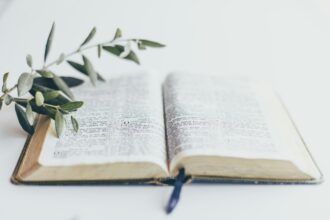The word “portion” is rarely used today except perhaps in the context of food or portion control. However, “portion” carries a far deeper significance in the Bible. When the Bible says, “The Lord is my portion,” it reveals a profound truth about God’s sufficiency.
The biblical writers describe God as their allotted inheritance. Unlike the other tribes of Israel, which were given portions of Canaan as their inheritance, the Levites were set apart for priestly service and given the Lord Himself as their inheritance. Numbers 18:20 (NKJV) encapsulates this promise: “The Lord said to Aaron: “You shall have no inheritance in their land, nor shall you have any portion among them; I am your portion and your inheritance.”
The psalmists often wrote about this concept:
- King David, one of the wealthiest men in history, began Psalm 23 with these timeless words: “The Lord is my Shepherd, I shall not want.” Peace and contentment come from believing these simple words: Jesus is enough for me. I shall not want.
- Asaph contrasts the fleeting prosperity of the wicked with the eternal reward of knowing God. He writes, “My flesh and my heart fail, But God is the strength of my heart and my portion forever” (Psalm 73:26, NKJV).
In Genesis 17:1, God revealed Himself to Abraham as El Shaddai, meaning “The All-Sufficient One” or “the God who is more than enough.” This name emphasizes the sufficiency of God as our portion.
To declare “The Lord is my portion” is to acknowledge that all His resources are available to us. This understanding transforms our spiritual lives, replacing fear and hopelessness with courage and joy. When we know God is our portion, there’s no problem facing lions or singing praises in prison at midnight. He is enough!









